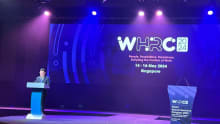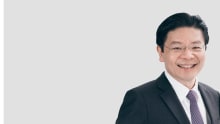Gender parity still at least 100 years away: WEF

It will be at least another century, on average, before all of the world’s available talent can fulfill its potential. That is the key takeaway of the World Economic Forum’s Global Gender Gap Report 2020, released mid-December 2019. The annual report, which quantifies and tracks disparities between men and women in educational attainment, economic participation, health, and political empowerment, found that while the worldwide gender gap has closed on average, with women highly likely to receive equitable treatment and see equivalent outcomes to men in the areas of health and education, there are still enormous differences in economic participation and political empowerment. Averaged across all areas and all countries, it will be 99.5 years before the gender gap closes; broken down, the situation is even less optimistic.
In terms of economic participation, the report found that there is still a 42 percent gap, meaning that women are 42 percent less likely to be holding jobs and earning money than men. WEF estimates that it will be 257 years before this gap closes. And as far as political empowerment goes, the gap is even greater, with women 75 percent less likely to be present and participating in politics than men, and another 94.5 years to go before they are equally represented in high levels of institutional leadership.
According to the report, the huge disparities in these two areas arise from two main underlying factors. Firstly, there is persistent discrimination against women in economic fields--WEF notes that in at least 72 countries, women are significantly disadvantaged in accessing credit, land or financial products, which prevents them from starting a company or making a living by managing financial assets. Secondly, in both developed and developing countries, women continue to assume a disproportionate burden of household and care responsibilities as compared to men, which further limits their ability to participate in the economy.
WEF founder Klaus Schwab wrote of the gap: “Without the equal inclusion of half of the world’s talent, we will not be able to deliver on the promise of the Fourth Industrial Revolution for all of society, grow our economies for greater shared prosperity or achieve the UN Sustainable Development Goals. At the present rate of change, it will take nearly a century to achieve parity, a timeline we simply cannot accept in today’s globalized world.”













